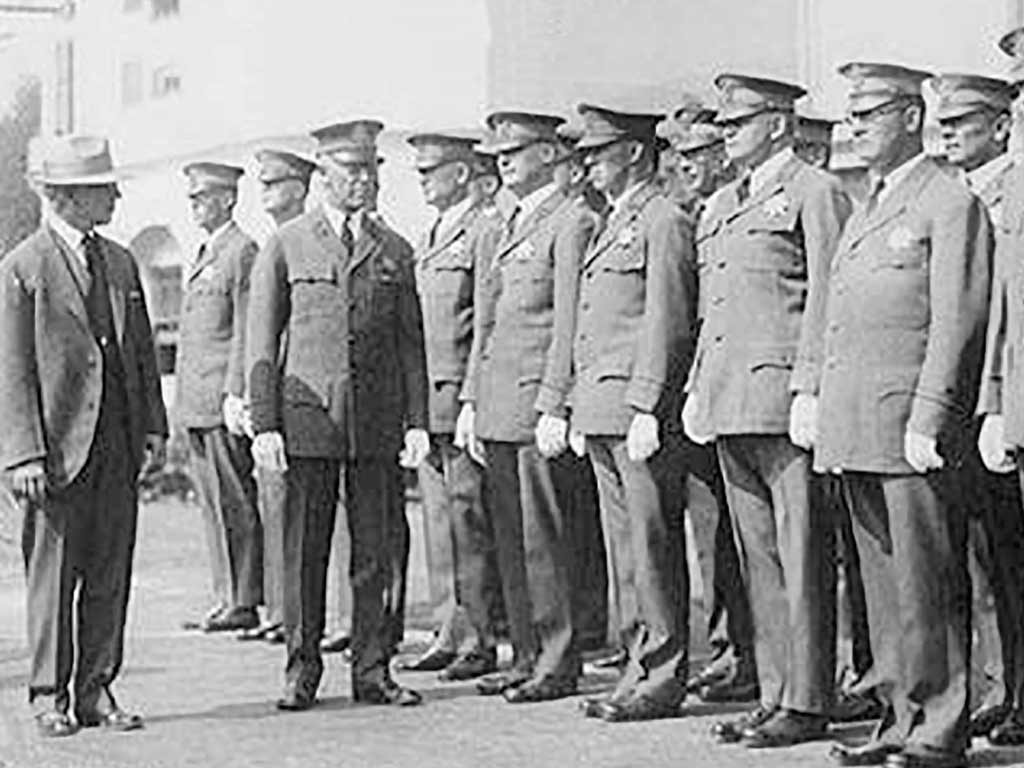The Massachusetts Environmental Police (MEP) unfolds a captivating narrative, tracing its roots in the late 19th century to its current role as a cornerstone in the conservation and law enforcement landscape of the state.
Established to combat wildlife depletion and poaching, MEP’s journey mirrors the evolution of environmental concerns and the imperative for specialized agencies.
This exploration delves into the historical foundations of the MEP, examining pivotal moments such as its formal establishment in 1866 and subsequent legislative milestones that shaped its trajectory.
Beyond its origins in fish and game enforcement, the MEP has adapted to address a spectrum of environmental issues, including air and water quality, habitat preservation, and ecosystem health.
As we unravel the historical tapestry of the Massachusetts Environmental Police, we gain insights into its pivotal role in balancing conservation goals, ensuring public safety, and fostering a shared commitment to environmental stewardship in the Commonwealth.
Join us on a journey through time to understand the nuanced history and enduring significance of the Massachusetts Environmental Police.
The Basics of Massachusetts Environmental Police

The Massachusetts Environmental Police operates within the jurisdiction of Massachusetts, USA, covering 10,565 square miles with a population of approximately 6,811,779.
As a civilian police force, it falls under the legal jurisdiction and governance of the Commonwealth of Massachusetts. Headquartered in Boston, the agency is led by Colonel Shaun Santos, serving as the Director.
Specializing in environmental law enforcement, the Massachusetts Environmental Police plays a crucial role in protecting the state’s natural resources and ensuring compliance with environmental regulations.
Their operations aim to maintain a balance between conservation efforts and law enforcement within the Commonwealth. Here’s a table summarizing the basic information on the Massachusetts Environmental Police:
| Category | Information |
| Operations Jurisdiction | Massachusetts, USA |
| Size | 10,565 square miles (27,360 km2)[1] |
| Population | 6,811,779 (2016 est.)[2] |
| Legal Jurisdiction | Commonwealth of Massachusetts |
| Governing Body | Commonwealth of Massachusetts |
| General Nature | Civilian police |
| Operational Structure | |
| Headquarters | Boston, Massachusetts |
| Agency Executive | Colonel Shaun Santos, Director |
Founding of Massachusetts Environmental Police

The Massachusetts Environmental Police (MEP) was established to safeguard the state’s natural resources and enforce environmental laws.
Its founding can be traced back to the early 20th century, gaining official status in 1866 when the Massachusetts Legislature authorized the appointment of fish and game wardens.
Over time, as environmental concerns grew, the role of these officers expanded to address broader conservation issues. Here are some key points about the founding of the Massachusetts Environmental Police:
Origins in Conservation
The roots of MEP lie in the conservation movement of the late 19th century, emphasizing the need for dedicated officers to protect wildlife and natural habitats.
Fish and Game Wardens
MEP’s precursor was a force of fish and game wardens appointed in 1866 to combat poaching and enforce hunting and fishing regulations.
Evolution of Responsibilities
With the increasing recognition of broader environmental challenges, the agency’s responsibilities evolved to encompass a wider range of environmental protection and law enforcement.
Formal Establishment
In the early 20th century, the agency took on a more formal structure, reflecting the growing importance of environmental conservation.
Legislative Support
The Massachusetts Legislature played a pivotal role in formally recognizing the need for a dedicated environmental police force and providing legal backing for its establishment.
Expanding Jurisdiction
Over the years, MEP’s jurisdiction expanded beyond fisheries and wildlife to include enforcement of environmental laws related to air, water, and land.
Integration into Modern Conservation
Today, the Massachusetts Environmental Police is an integral part of the state’s modern conservation efforts, working to ensure the sustainable use and protection of Massachusetts’ diverse ecosystems.
Reasons Behind Establishing Massachusetts Environmental Police

The establishment of the Massachusetts Environmental Police (MEP) can be attributed to several compelling reasons that reflect the need for specialized law enforcement dedicated to environmental conservation.
Some key reasons include:
Conservation Concerns
In the late 19th century, growing concerns about the depletion of wildlife and natural resources prompted the need for a dedicated force to enforce conservation laws.
The establishment of MEP addressed these concerns by focusing on the protection of fish, game, and other environmental resources.
Poaching and Illegal Activities
The rise of poaching and illegal hunting threatened the state’s wildlife populations.
The creation of MEP provided a specific agency with the authority to address and combat these illegal activities, ensuring the sustainable use of natural resources.
Expanded Environmental Jurisdiction
As environmental awareness grew, so did the recognition of the interconnectedness of various environmental issues.
The establishment of MEP allowed for an expansion of jurisdiction beyond traditional wildlife management to include enforcement of laws related to air and water quality, land use, and overall ecosystem health.
Legislative Support
The Massachusetts Legislature played a crucial role in recognizing the importance of environmental protection and conservation.
Legislation supporting the creation of MEP provided the agency with a legal framework and authority to carry out its mission.
Public Safety and Education
Beyond enforcing environmental laws, MEP was established to ensure public safety in natural settings.
The agency engages in educational initiatives to promote responsible outdoor recreation and raise awareness about the importance of environmental conservation.
Preservation of Ecosystems
The need to preserve and protect the diverse ecosystems of Massachusetts was a driving force behind the creation of MEP.
This included efforts to safeguard habitats, maintain biodiversity, and address threats to the overall health of the state’s environment.
Adaptation to Changing Challenges
MEP was designed to be flexible and adaptive, capable of addressing emerging environmental challenges.
This adaptability has allowed the agency to respond to modern issues such as climate change, invasive species, and evolving conservation priorities.
Balancing Conservation and Recreation
Establishing MEP helped strike a balance between conservation goals and public recreation.
The agency’s presence ensures that residents and visitors can enjoy the state’s natural resources responsibly while preserving the integrity of these ecosystems.
The establishment of the Massachusetts Environmental Police was driven by a combination of conservation needs, the rise of environmental awareness, and the recognition of the importance of preserving the state’s natural heritage for future generations.
The agency continues to play a vital role in addressing environmental challenges and enforcing laws to protect Massachusetts’ ecosystems.
Mission of Massachusetts Environmental Police

The Massachusetts Environmental Police (MEP) is dedicated to fulfilling a comprehensive mission that encompasses the protection and preservation of the state’s natural resources.
The agency’s mission is articulated through various objectives and responsibilities:
Environmental Stewardship
MEP is committed to serving as responsible stewards of Massachusetts’ diverse ecosystems, ensuring the sustainable management and conservation of natural resources.
Wildlife and Habitat Protection
The agency works to safeguard the state’s wildlife and habitats by enforcing laws and regulations related to hunting, fishing, and conservation, preventing poaching and illegal activities.
Environmental Law Enforcement
MEP plays a crucial role in enforcing environmental laws and regulations and addressing violations related to air and water quality, land use, and other ecological concerns.
Public Safety
Beyond environmental protection, the agency prioritizes public safety, responding to emergencies and incidents that threaten the well-being of residents and visitors in natural settings.
Education and Outreach
MEP engages in educational initiatives to raise awareness about conservation, environmental laws, and responsible outdoor recreation, fostering a sense of shared responsibility among the public.
Collaboration
The agency collaborates with other law enforcement agencies, environmental organizations, and community stakeholders to develop and implement effective strategies for environmental protection and enforcement.
Adaptation to Changing Conditions
Recognizing the dynamic nature of environmental challenges, MEP adapts its strategies and policies to address emerging issues, climate change impacts, and evolving conservation needs.
Through its multifaceted mission, the Massachusetts Environmental Police strives to balance the use and enjoyment of natural resources with their sustainable preservation, ensuring a harmonious coexistence between the community and the environment.
Historical Significance of Massachusetts Environmental Police

The Massachusetts Environmental Police (MEP) holds historical significance in the context of environmental conservation and law enforcement within the state. Key aspects contributing to its historical importance include:
Pioneering Conservation Enforcement
MEP traces its roots to the late 19th century, reflecting the early recognition of the need for dedicated officers to enforce fish and game regulations.
This pioneering effort set the stage for the development of specialized environmental law enforcement agencies.
Evolution with Conservation Movements
The agency has evolved alongside the broader conservation movements, adapting its mission to address emerging environmental concerns beyond traditional wildlife management.
Legislative Recognition
The formal establishment of MEP by the Massachusetts Legislature marked a significant moment in recognizing the importance of environmental protection and providing the legal framework for the agency’s existence.
Expanded Jurisdiction
MEP’s historical journey involves the expansion of its jurisdiction to cover a broader spectrum of environmental issues.
This expansion reflects the state’s commitment to addressing diverse challenges and ensuring comprehensive conservation efforts.
Balancing Conservation and Recreation
Over the years, MEP has played a pivotal role in finding a balance between conservation goals and public recreation.
This delicate equilibrium is crucial for maintaining the ecological health of Massachusetts while allowing residents and visitors to enjoy the state’s natural beauty.
Adaptation to Modern Challenges
The agency’s historical significance lies in its ability to adapt to evolving environmental challenges, including the impact of climate change and the need for sustainable practices.
MEP remains at the forefront of addressing contemporary issues affecting the state’s ecosystems.
Community Engagement
MEP’s historical role includes fostering community engagement and education. By actively involving the public in conservation efforts, the agency contributes to a shared responsibility for the protection of Massachusetts’ natural resources.
The historical significance of the Massachusetts Environmental Police lies in its pioneering efforts, legislative recognition, adaptation to changing environmental dynamics, and its role as a guardian of the state’s natural heritage.
As an institution with a rich history, MEP continues to be a vital force in preserving and protecting Massachusetts’ environment for future generations.
FAQs
Why was the Massachusetts Environmental Police created?
The Massachusetts Environmental Police (MEP) was established in response to growing concerns about wildlife depletion and the need for dedicated law enforcement to enforce conservation laws, combat poaching, and address broader environmental issues.
When was the MEP formally established?
The MEP traces its roots to the late 19th century, gaining formal status in 1866 when the Massachusetts Legislature authorized the appointment of fish and game wardens, marking a significant step in the agency’s establishment.
How has the role of MEP evolved?
Originally focused on fish and game enforcement, MEP’s role has evolved to address a wide range of environmental issues, and overall ecosystem health, reflecting the changing dynamics of environmental challenges.
What legislative support led to the creation of MEP?
The Massachusetts Legislature played a pivotal role in recognizing the importance of environmental protection and providing the legal framework and authority for its operations.
How does MEP contribute to public education and engagement?
MEP actively engages in educational initiatives to raise awareness about responsible outdoor recreation, environmental conservation, and the importance of protecting natural resources.
The agency collaborates with communities, stakeholders, and the public to foster a sense of shared responsibility for environmental stewardship.
Wrapping Up
The history of the Massachusetts Environmental Police is a journey reflecting the evolution of environmental conservation and law enforcement.
From its origins in addressing wildlife depletion and poaching in the late 19th century, the MEP has grown into a dynamic agency adapting to modern environmental challenges.
Legislative support and a commitment to public education showcase its vital role in preserving the state’s natural heritage.
As stewards of Massachusetts’ diverse ecosystems, the MEP’s historical significance lies in its pioneering efforts, legislative recognition, and continuous adaptation to changing environmental dynamics.
The agency’s dedication to balancing conservation and recreation ensures the sustainable use of natural resources, contributing to a harmonious coexistence between the community and the environment.
Jaclyn Lowe